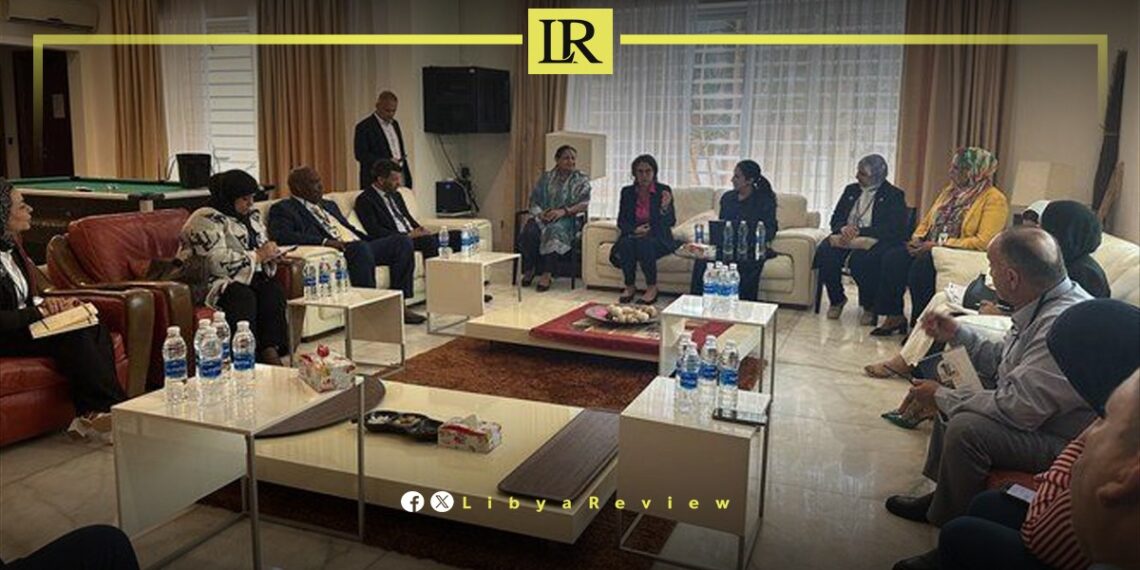The Deputy Special Representative of the United Nations Secretary-General for Political Affairs and Acting Head of the United Nations Support Mission in Libya (UNSMIL), Stephanie Khoury held meetings with political components during her visit to Benghazi.
Khoury met with 15 civil activists representing a spectrum of Libyan civil society organisations. They expressed hopes to end political divisions, achieve sustainable stability, expand political participation and representation, and improve basic services.
According to a UNSMIL statement, Khoury also met with a group of women’s rights activists who shared their views on addressing the political, economic, and developmental needs of the Libyan people, and ensuring meaningful representation of women in the political process and decision-making forums.
Participants in both meetings voiced frustration over the non-implementation of previous political agreements and called for strong future monitoring mechanisms.
Khoury reaffirmed UNSMIL’s commitment to amplifying the voices of women, youth, and civil society in shaping Libya’s future.
On Tuesday, Khoury met with members of the Libyan Association for Political Science, who analyzed the deep-rooted causes of the Libyan crisis and stressed the need for unified institutions upholding the principles of rule of law, transparency, and good governance to meet citizens’ urgent needs.
Khoury also participated in a panel discussion organized by the Center for Peace Studies and Crisis Management. Participants called for exploring new avenues for sustainable solutions that break away from past failures.
Khoury reiterated UNSMIL’s readiness to work with the Libyan academic community and all Libyans to address the current situation and help establish an institutional governance system that ensures the rule of law, human rights, and equitable development for all.
Libya has been in chaos since a NATO-backed uprising toppled longtime leader Muammar Gaddafi in 2011. The county has for years been split between rival administrations.
Libya’s economy, heavily reliant on oil, has suffered due to the ongoing conflict. The instability has led to fluctuations in oil production and prices, impacting the global oil market and Libya’s economy.


